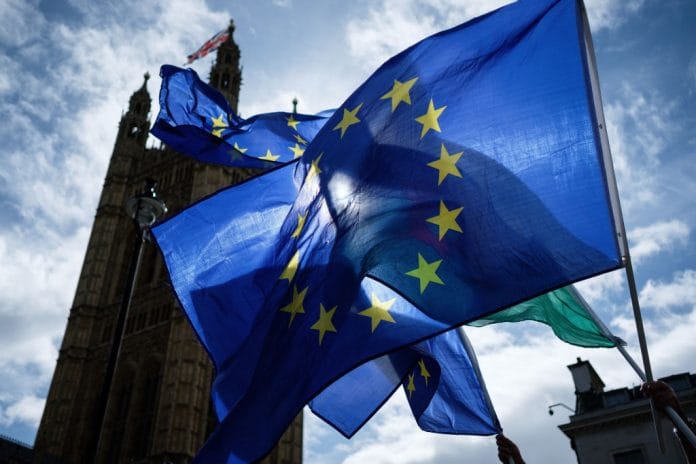Chinese tactics are now being termed as ‘sharp power’, and re-doing the Brexit deal could be the wrong thing to do. The Alabama senate election was influenced most by black women, with 98% voting for the Democrat Doug Jones and not for the controversial Roy Moore, saving America from potentially having a detrimental power imbalance.
The world needs to wake up to China’s ‘soft power’
Even if China does not seek to conquer foreign lands, it does seek to conquer foreign minds, argues The Economist. And the West needs to respond soon.
While Australia was the first to raise alarm over China’s tactics – the Australian government’s new laws to tackle “unprecedented and increasingly sophisticated” foreign efforts to influence lawmakers was a consequence of this – Britain, Canada and Germany are also concerned.
“This behaviour has a name—‘sharp power’, coined by the National Endowment for Democracy, a Washington-based think-tank. ‘Soft power’ harnesses the allure of culture and values to add to a country’s strength; sharp power helps authoritarian regimes coerce and manipulate opinion abroad.”
“Because China is so integrated into economic, political and cultural life, the West is vulnerable to such pressure. Western governments may value trade over scoring diplomatic points, as when Greece vetoed a European Union statement criticising China’s record on human rights, shortly after a Chinese firm had invested in the port of Piraeus. The economy is so big that businesses often dance to China’s tune without being told to.”
So how must the West respond? “Counter-intelligence, the law and an independent media are the best protection against subversion. All three need Chinese speakers who grasp the connection between politics and commerce in China. The Chinese Communist Party suppresses free expression, open debate and independent thought to cement its control. Merely shedding light on its sharp tactics—and shaming kowtowers—would go a long way towards blunting them.”
Brexit redo would be a blunder
After British MPs handed Theresa May a surprise defeat by in a crucial vote on Brexit, Remainers might think that it is another opportunity to consider scrapping the referendum and calling another one. Tempting as it may be, it would simply be the wrong thing to do, writes Therese Raphael in the Bloomberg View.
“Even if the U.K. parliament could agree on a referendum before the Article 50 clock runs out, it seems reckless to do so,” Raphael writes. “At a time when public confidence in politicians is weak, how does it encourage faith in democracy for a government to call a vote that is meant to be definitive and then replay it? More importantly, having seen the toll that uncertainty has already brought on the U.K. economy, it would be folly to drag out the uncertainty with a new campaign and vote. And at a time when other important issues—from housing shortages to inequality and a severely strained national health care service—are starved of the oxygen of government attention, it would be a profligate use of government energies.”
“Perhaps one day—possibly decades into the future—there will be a strong enough case for revisiting the June 2016 decision. That isn’t now. Those who want a close relationship with Europe should instead think about how to influence the trade negotiations that are about to begin.”
No country for journalists
More than half of the journalists jailed for their work globally come from three countries: Turkey, China and Egypt. This, for the second consecutive year in a row.
“The number of journalists imprisoned worldwide hit another new record in 2017,” reveals a new report from the Committee to Protect Journalists (CPJ). “The pattern reflects a dismal failure by the international community to address a global crisis in freedom of the press,” it argues.
“Far from isolating repressive countries for their authoritarian behavior, the United States, in particular, has cosied up to strongmen such as Turkish President Recep Tayyip Erdoğan and Chinese President Xi Jinping. At the same time, President Donald Trump’s nationalistic rhetoric, fixation on Islamic extremism, and insistence on labeling critical media ‘fake news’ serves to reinforce the framework of accusations and legal charges that allow such leaders to preside over the jailing of journalists. Globally, nearly three-quarters of journalists are jailed on anti-state charges, many under broad and vague terror laws, while the number imprisoned on a charge of ‘false news’, though modest, rose to a record 21,” it says.
Far from being saved, Black women have been saving America for decades
The figures of Alabama’s state election show something that ought to have already been known by Americans: Black women have been trying to save America from itself for generations. “Though it would not be surprising if you’ve never heard their stories – by and large black female trailblazers have tended to be erased from history,” writes Charlene White in The Guardian.
“But that marginalisation has never stopped their continued fight for justice and equality,” she argues. “In Alabama, 98 percent of them voted against Roy Moore, a man who – among other things – is accused of assaulting teenage girls. And yet 63 percent of white women voted for a man accused of such things. But there’s form here. Despite allegations of sexual impropriety against Donald Trump during the 2016 election race, 53 percent of white women voted for him to become president, compared to 3 percent of black women.”
“African-American men did that, too. Exit polls show that 6% of black men voted for Moore – compared to 72% of white men.”
“What is surprising though is that in the era of the #MeToo movement, white women in Alabama didn’t see the accusations of underage sexual conduct as enough of a reason not to put someone in office,” she rues. “But despite being disrespected, unprotected and neglected, they came out in their droves and righted what could have been a huge wrong.”






